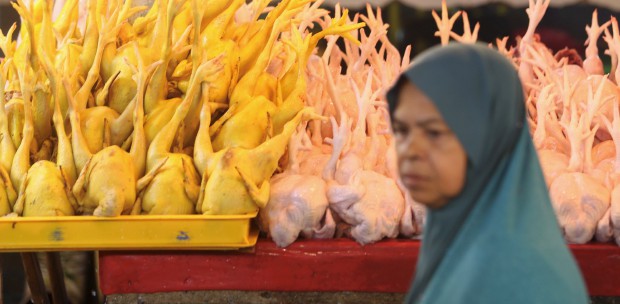Rising consumer prices or inflation is a major concern in the management of the economy.
It is a challenge to address because much of the causes were the result of the pandemic disrupting global supply chains and production systems.
Given rising demand amid an uncoordinated production system, some price increases are expected.
At the local level, supply chain disruption has impacted the labour situation consequent upon the inadequacy of labour supply, especially the availability of foreign labour in labour-intensive sectors, such as plantation, agriculture and construction.
The decline in value of the ringgit adds pressure to price levels. Vegetables, fish and imported goods are now more expensive than about a month or two ago. Housewives are complaining about the sharp rise in prices.
Inflation is very irritating to the fixed and low-income sections of the workforce. And with the pandemic, B40 and M40 families have much in common now, especially in the declining real value of their take-home salaries.
For the jobless, the price pressures put even much more suffering upon their standard of living, having to survive with their meagre savings.
In curbing inflation, the standard policy responses often incorporate price controls, liberalise imports to ease supply shortages, reduce taxes and increase domestic food production.
Inflation is not new, and our nation has a good track record of price stability. The present rise in prices could be caused by the breakdown in global and regional supply chains, a situation that had never happened recently.
Neither is this inflation caused by a sharp rise in demand nor a prolonged rapid economic growth that put much pressure on wages and salaries.
The lessons that we have learnt may warrant us to resort to long-term measures to overcome plausible causes of supply shortages, such as artificial scarcity or market structures and rigidities.
Officials may examine the real causes of this current inflation and recommend appropriate responses. The government had said inflation might ease early next year.
We, however, often forget to examine the market structure that may give rise to price spikes. Are there monopolies and duopolies, and cartel and collusion, and other unfair trade conduct, which are not discernible to the untrained eye?
There may be a few operators who may control supplies, including imports, and they influence and regulate the prices for wholesale and retail markets. Their strong capital base and networking as well as dominance over market intermediaries, such as middlemen, help them control the domestic supply chain.
Some liberalisation on the import of foods, such as fruits and vegetables, may enhance competition and bring prices down. Intervention by public agencies, such as the Federal Agriculture Marketing Authority, can be considered to facilitate importation of food items until prices are back to normal.
It is also worthwhile to encourage Malaysians to go into intensive farming using modern technology that is not that high capital and land intensive.
The experience of "Buku Hijau" may be revisited in which families were provided by Mardi and the Department of Agriculture with seeds and seedlings to be planted around homes and on available land around houses.
In the past few decades, we have given little attention to agriculture, resulting in the younger generation having less affinity for agricultural-related undertakings. A new approach to attract them to modern small-scale agriculture, even as hobbies, may be useful, now that the job market is getting weak.
In any case, many of our unemployed graduates could have turned into modern farmers by using techniques such as hydrophonics and fertigation, producing high-return short-term crops. As an example, figs, a fruit found in the Middle East and the Mediterranean, are profitable.
On a wider front, addressing inflation — where demand pull and cost push factors may not be the main causes now — facilitating production and assisting entrepreneurship, especially the small and medium businesses and industries, can help us overcome supply shortages, joblessness and assist income creation.
In this regard, the Finance Ministry, Bank Negara Malaysia, and the ministries dealing with commerce and entrepreneurship, can help the country facilitate its post-Covid 19 economic recovery while helping addressing the current inflation.
The writer is chairman of the Malaysian Institute of Economic Research and an academic fellow at Universiti Sains Malaysia
The views expressed in this article are the author's own and do not necessarily reflect those of the New Straits Times





